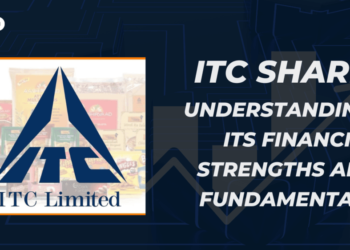Table of Contents
There are two methods to manage wealth: preserving what you have or expanding it. Which course to choose can be confusing. Recently, investors are nervous due to news of increasing inflation. Where to invest your money rages down to two segments of the financial market: the money market or the capital market.
The money market and the capital market are two extensive segments of the global financial market where the accounts funded are used for short-term or long-term borrowing and lending.
To Learn All about Financing Download Entri App!
Money Market 2022
The money market is one of the pillars of the multinational financial scenario. It applies overnight trades of extensive portions of money between banks and the government. Most of the money market trades are wholesale transactions that take place between financial institutions and businesses.
Organizations that participate in the money market include banks that lend to one another and to large enterprises in the time deposit markets; companies that grow money by selling commercial paper into the market, which can be purchased by other businesses or funds; and investors who buy bank CDs as a safe place to park money in the short term. Some of those wholesale transactions finally make their form into the hands of consumers as constituents of money market mutual funds and other investments.
Types of Money Market 2022
Treasury Bills
T-bills are one of the most widespread money market devices. They have unstable short-term maturities. The Government of India administers it at a discount for 14 days to 364 days.
These devices are issued at a discount and compensated at par at the time of maturity. Also, a company, firm, or person can buy TB’s. And are published in lots of Rs. 25,000 for 14 days & 91 days and Rs. 1,00,000 for 364 days.
Commercial Bills
Commercial bills, also a money market mechanism, function more like the bill of exchange. Businesses issue them to fulfill their short-term money conditions.
These mechanisms deliver much better liquidity. As the same can be transmitted from one person to another in case of rapid cash requirements.
Certificate of Deposit
Certificate of deposit or CD’s is a traversable term deposit tolerated by commercial banks. It is generally issued through a promissory note.
CDs can be administered to individuals, corporations, trusts, etc. Also, the CDs can be administered by organized commercial banks at a discount. And the time of these changes between 3 months to 1 year. The same, when administered by a financial institution, is given for a minimum of 1 year and a maximum of 3 years.
Commercial Paper
Corporates issue CP’s to fulfill their short-term working capital necessities. Hence functions as an alternative to borrowing from a bank. Also, the duration of commercial paper varies from 15 days to 1 year.
The Reserve Bank of India spreads down the policies linked to the issue of CP’s. As a result, a company needs RBI‘s initial support to issue a CP in the market. Also, CP has to be administered at a discount to face value. And the market determines the discount rate.
Call Money
It is a component of the market where expected commercial banks lend or borrow on short notice (14 days). To manage day-to-day cash discharges.
The interest rates in the market are market-driven and hence positively sensitive to market and supply. Also, the interest rates have been known to differ by a large % at certain times.
Click Here to Download Entri App for Notes on Financing!
Capital Market’
The Capital market is a market where buyers and sellers confront the commerce of financial securities like bonds, stocks, etc. The buying/selling is ventured by parties such as individuals and institutions.
Capital markets help track excess funds from savers to institutions which then invest them into effective use. Normally, this market sells mostly in long-term securities.
The capital market includes the primary markets and the secondary markets. Primary markets sell with the trade of new points of stocks and other securities, whereas secondary market sells with the exchange of existing or previously-issued securities. Another significant unit in the capital market is made based on the nature of security sold, stock market, and bond market.
Types of Capital Markets
1: What does the acronym "ATM" stand for in banking?
Capital markets mainly feature two kinds of securities – equity securities and debt securities. Both are documents of investments that deliver investors with various returns and risks and supply users with capital with distinct responsibilities.
Equity Securities
Equity securities are sold on the stock market and are essentially ownership shares of a company or venture. When you own equity securities of an enterprise, you own a portion of that company and are authorized to any future payments that the company brings in.
However, the money that you invest in equity securities is not needed to be paid back by the industry.
Debt Securities
Debt securities are sold on the bond market and are IOUs that can come in the state of bonds or notes. They effectively represent the borrowing of money that will be paid back at a later date with interest.
Interest is the necessary settlement that attracts lenders to lend their money. The borrowers will take the money today, use it to fund their operations, and pay back the money in reserve to a prescribed rate of interest at a later date.
The difference between Money Market and Capital Market
The money market is described as trading in debt of less than one year. It is mainly used by governments and corporations to keep their cash flow constant, and for investors to make a modest profit.
The capital market is committed to the sale and purchase of long-term debt and equity agencies. The term “capital markets” guides the totality of the stock and bond markets. While anyone can buy and sell a stock in a bit of a second these days, institutions that issue stock do so to raise money for their long-term functions. While a stock’s value may vary, unlike many money market developments, it has no extinction date (unless, of course, the company itself ceases to operate).
Money markets are mostly used for short-term borrowing of the investments, which are held for less than a year or one year whereas, Capital Markets are used for long-term securities which have a direct or indirect effect on the capital. Capital markets contain both the equity market and the debt market. To keep learning and expanding your understanding of financial analysis, through the highly recommend additional resources by the Entri learning App.












